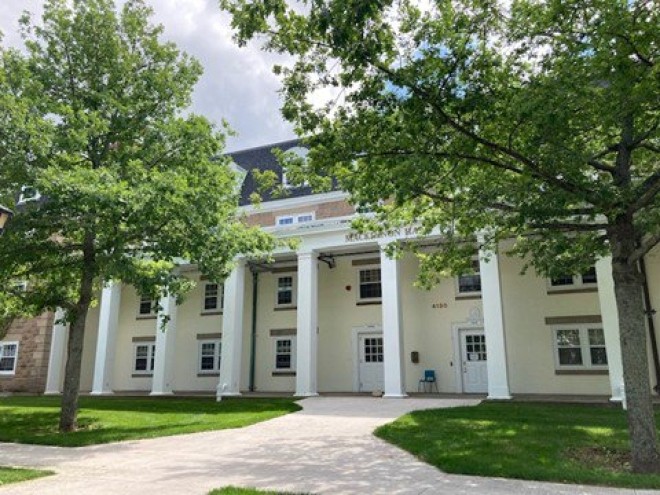Program Overview:
About the Humanities Colloquium
The Humanities Colloquium is a unique first-year experience in the Faculty of Arts that provides an interdisciplinary introduction to Western civilization through the great books of our culture. If you’re interested in studying literature, history, and philosophy in small classes where debate and discussion is encouraged, the Humanities Colloquium might be right for you. After first year, Humanities Colloquium students can go on to major in any subject within the Faculty of Arts.
What is the Humanities Colloquium?
It is a first-year option in the Faculty of Arts. Enrolled students all take the same sections of Philosophy, English, and History or Art History. These courses are taught collaboratively, as if they were a single course, and they are organized historically. Lectures, assignments, and discussions are coordinated to bring out exciting connections among the disciplines, and to avoid conflicts in assignment due dates.
A Foundation Year
The Colloquium will provide you with a foundation for any major in the Faculty of Arts. The HC closes no options in Arts, but opens many. It will also give you a community of scholars and friends, because you will study together with other HC students, and some HC students may choose to live together in one residence. The benefits from the HC will be in clear thinking, writing, and understanding of broad and important cultural traditions. The goal of the Colloquium is not to make you think like others, but to give you the best tools to think for yourself. Great minds do not think alike!
What will you study?
In these courses, you will learn from the greatest teachers — Plato, Sophocles, Aristotle, Boethius, Thomas Aquinas, Chaucer, Shakespeare, Descartes, Milton, Michelangelo, Hume, Kant, Marx, Nietzsche. The study of these will be coordinated historically: for example, when you read Shakespeare in English, you will also read Descartes in Philosophy and Calvin in History. Guest lectures, debates, and informal discussions will supplement classroom learning.





